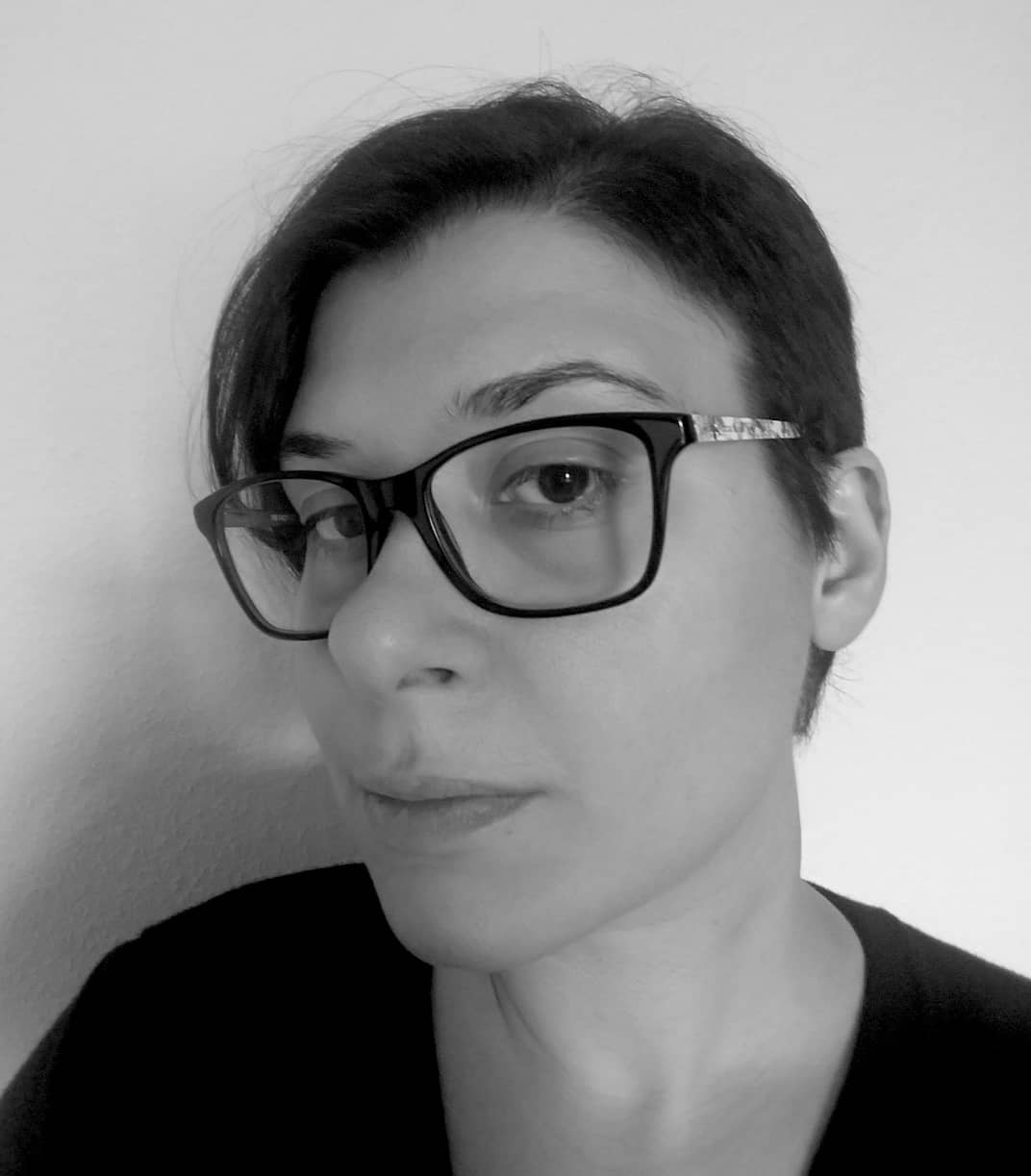
Where this story begins is not where it ends. The ending is neither a natural conclusion to the events leading up to it, nor a product of necessity. If you see things in the beginning that you feel foreshadow the ending, if you catch yourself saying “I knew it!” or “Well, it was obvious from the start that she would end up that way,” then know you found these narrative threads within yourself. Predestination and retrojection are not necessarily two different things.
I, for one, remain cynical.
So, first:
A FEW THINGS SHE LEARNED ABOUT THE WORLD
The attic
My attic has no windows. Its wooden walls are the outer crust of my body. I open my arms and hug me. I place my cheek on the wood and it scratches my skin. I listen to the nightsounds. The heavy breathing of the people of the city. Miles away. The trees. The birds. The beaches. The midnight train. The sound of an expanding universe. The whoosh of the stars as they move farther and farther away at the speed of light — the world is running away and the earth is left behind, swimming lonelier and lonelier in the darkness in between. The Earth will someday be all alone in a dark universe. You’ll see.
I have a clock on the wall, standing still. The time, it says, is 2:45.
I have a mattress on the floor and a blue sheet. I have a box of photographs. I have a lamp emitting yellow light. Some nights I switch her on and look into her eyes; her metallic arms catch fire, my optic nerve is on fire too and then I’m gushing light, but my attic is windowless, my light unseen.
I have nothing more. To say.
I have a child. In the daytime I have a child. Miles away, across the sea.
§
The womb
My ova speak from inside my womb. They are all girls. They are all girls and they do not want to be born.
§
The birds
The birds speak. I thought their stories would be about journeys to distant lands, beautiful passersby and happy princes. I was wrong. They talk about their wings, the wind, the worms. People, to birds, mean nothing.
§
The beaches
Beaches are my favourite places in the whole world. Vast, empty beaches. With powdery sand and quiet waters. If it’s not too much to ask.
Some nights my attic borders a great beach. I walk along its edge. The child too. Miles away.
I lie on the sand and forget where I end and where the sea begins. I am vast as an island.
He is never on the beach. The child and I run across the shore. The child looks like me, a mirror. The waves chase our steps. We leave no trace. The child is water, foam on the sand. He can’t find us.
The beach is boundless. And the sound. Boundless.
§
The photograph
He has a bandaged knee. She’s wearing a dress that leaves her shoulder bare. You can almost make out her left breast.
They look happy. They are on an island. There is a hill with a small tower in the background.
What happened to these people?
I knew them, once.
§
The box
Next to the photographs, the box holds the little teeth of the child. I take them out from time to time, place them on my open palms and study them. I say they are pearls, rare jewels from a distant ocean bed. Which pearl fisher recovered them, my treasure?
§
The floor
The floor of my attic is covered with canvas. The canvas is brown with red diamond shapes. I sit counting them — three, five, seven — my optic nerve blazing and my pores tiny windows with a view to the universe — twenty, thirty, a hundred — until I get dizzy and fall back into a blue sea.
When I emerge, I find grains of sand scattered on the floor.
§
The ceiling
The ceiling is askew. The ceiling breathes. Very slowly. One breath can take more than twenty-four hours.
Tonight, the ceiling is breathing in. I can feel it coming closer. In a little while it will be so low it will push against my chest. I don’t know if I will be able to breathe. Anymore.
§
The rains
It rains all the time these days. I hear the water drum on the roof, the walls. It rains so much that the water is flooding all my thoughts, my memories. All of a sudden it rains in all the childhood parties I can remember, on birthday cakes and bowls of crisps, in the living rooms, on summer beaches and inside the church where I was yoked, at the cemetery (it always rains there, of course) — on the bus the passengers are soaking wet, at uni the students hold umbrellas inside the auditorium, at the supermarket it’s pouring and all the sugar melts and flows in the corridors, and I’m pushing my cart through syrup. Happy.
§
The clock
In my attic, the time has been 2:45 for a long while.
I wonder what one is to do if her watch is unwound and she doesn’t have another. How does she find time again? If her life is unwound and she doesn’t have another? How does she find herself again? (2:45. Day or night? Day? Or Night?) What do you do when your body is unwound and you have no other? How do you find your voice again? My voice is unheard except on the inside / My mind a waterfall of unwound syllables: ne, oi, sa, se, Se, She — Noisenoisenoisenoisenoise —
gather up speed and nail your mind to the wall —
§
The door
Behind the door there is the child. I can smell his salty skin through the cracks. I kneel and press my cheek to the canvas. I think the child behind the door does the same. He is the mirrorchild. I think tonight he might speak to me.
“Can you hear me, child?”
“Are you my mum?”
“Yes.”
“Are you a monster?”
Am I? Am I?
“You shouldn’t be talking to me at this hour,” the child echoes in the man’s voice.
“I know. Go to bed, he’ll hear you.”
“Okay. Are you sure you’re my mum?”
“Yes.”
“Okay.”
Pause. Is he still there?
“I love you, child.”
He doesn’t reply.
§
The ending
Years later, we flee.
It’s one night when the child hits him on the head with a frying pan and lets his monstrous nightmother out of the attic. We board the man’s little boat and sail away, leaving my vast beach behind before dawn breaks the sky. I imagine I am a floating island, drifting away into the sea.
§
Now, the voice changes. This is narrative. It is the undercurrent of the story, where anything can happen:
§
HOW SHE BECAME AN ISLAND
§
When the storm subsides, she looks for the child in the water. She looks and looks but the child is not there; only her face looking back at her from the surface of the sea. A mirror. She falls back onto the boat and hugs her torso. She imagines the child falling over the side of the boat, herself clutching the rim. She screams when the child’s body dissolves in the water, as if he were never there.
The surface of the sea shivers in the breeze, and she would swear she hears it whisper in the voice of the child. She straightens her body and dips her hands in the water. She starts paddling away, towards the rising sun.
§
Days pass. She calls to the child until her voice cracks. Her body stiffens. She keeps reminding herself who she is, for fear that she might turn into something lifeless and stony if she didn’t. She remains still until night falls, heavy and dark but for the faraway stars.
Drop by drop, her boat slips through the ocean. She watches the passing lights travel on the sky’s hunched back. She imagines that the child is in the boat with her; she takes his hand and points his little fingers at the sky: “There,” she says, “these are the North Stars, the seven sisters who, chased by a monster, found a rope leading to the sky and climbed it.” She tells the child about the youngest one sitting in the corner, with her half-eaten foot peering through the folds of her skirt. And there, on the left, the little drum — “If I strike it,” she says, “will you hear it, child? If I dance to its rhythm, will you dance along? Mirrorchild, mirrorchild?”
She closes her empty hand into a fist. She tries to open it again, but can’t; it’s stiff as a stone.
§
Months pass. Her body grows cold and hard over time. One night, as she stands immobile in the saline breeze, her clothes turning into a pillar of salt, she hears the splash of giant steps in the water. An enormous shadow in the shape of a man is wading in the ocean. His feet are the sea, his head is the sky. He reaches out and grabs a star. One by one, he swallows the seven sisters. He eats up the drum and the mighty hunter. The eagle and the hound. And as she watches, she loses her grasp on definitions. What is sky and what is sea? she wonders. Where is earth and where is stars? Have I always been this cold? Have I always been this hard?
Her hardness takes over the boat, becomes one with it, and then her body keeps growing, solid with rock and earth, with salt, and stone. Immense, indefinable, she floats away on an ocean of black ink.
Few are the seamen who can claim to have seen her, and fewer yet those who have trodden on her shores. But they all know the story of the mother who is an island, drifting in the sea until the tide brings her child back to her shores, so he can lie on her sand and watch the starless sky above.












